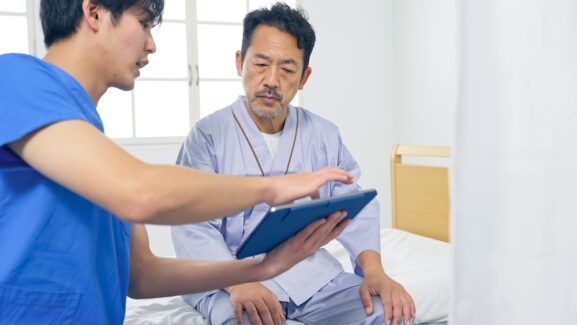Should Psychedelic Therapists Be Required To Take Psychedelics? TheraPsil Training Advisor Dave Phillips Weighs In
If psychedelics were legalized tomorrow, would the healthcare system be ready for psychedelic-assisted therapies? While there are plenty of biotech companies eager to supply drugs like psilocybin and MDMA for therapeutic use, psychedelic-assisted therapies won’t be accessible until enough therapists and practitioners have undergone the appropriate training. That training usually involves undergoing psychedelic-assisted therapy themselves.
Enter TheraPsil, a non-profit coalition that has helped dozens of Canadians in medical need access psilocybin-assisted therapy legally.
In addition to helping patients, TheraPsil offers an intensive training program for healthcare professionals who want to learn the necessary skills to work with psilocybin in a therapeutic context. To date, more than 220 therapists, doctors, nurses, and counselors have successfully completed TheraPsil’s training program, the first legal therapeutic psilocybin training course in the country.
Dave Phillips, TheraPsil’s training advisor, has worked as a registered clinical counsellor since 1992 and began working with psychedelics in 2017. He recently sat down with Healing Maps to discuss his work and unpack some of the key concepts taught in TheraPsil’s training program.
RELATED: The Stigma Of Psychedelics – Why ‘Illegal’ Doesn’t Always Mean ‘Dangerous’

Healing Maps (HM): What inspired you to start working with psychedelic medicines in a therapeutic context?
Dave Phillips (DP): “I’ve been a therapist for a long time, and I’ve been trauma-informed my whole career. I really do try to do my best work for people, but in 2015, I was really seeing how, even if people worked really hard, and we met regularly for two or three years, we could only get to a certain point. It was frustrating, and at one point, I even thought about giving up my career because of it.
“Then I read an article about MAPS, which I’d never heard of before, and it talked about how they were treating PTSD with MDMA. I remember thinking, ‘I don’t buy it,’ but that was the first time I was exposed to the idea of using medicines in therapy.
“Six months later, I read about Johns Hopkins using psilocybin for end-of-life anxiety. I didn’t know what psilocybin was, but that got my attention because of Johns Hopkins’ reputation. That got me into the research, and for two years, I dug into everything I could before I said, ‘I want to be a psychedelic therapist.’ What was really clear was, if I was going to be a psychedelic therapist, I had to try psilocybin myself. That led me to have my own psilocybin experience, and everything changed after that.”
HM: You’ve said that your experience with magic mushrooms helped make you a more empathetic psychotherapist. Do you think it’s necessary that therapists have their own psychedelic experiences before working with other people?
DP: “One hundred percent. For me, it’s an issue of safety. Because it involves such an altered state, I think practitioners really do have to have first-hand experience of the territory. Having that understanding of what the space is like helps you move more fluidly.
“The mistake most new psychedelic therapists make is they over-function — they try and get in and do something in the trip, when really what you want to do is keep the trip moving. You may have to intervene occasionally, but for the most part, you just want to hold the space and stay connected. The subtleties of that are forged in the experience of your own journey. At TheraPsil, that’s an absolute boundary.”
RELATED: 3 Great Books About Psychedelics For Integrating Your Psychedelic Experience
HM: You’ve said, “there are no bad trips, only challenging ones.” What do you mean by that?
DP: “Most people define a bad trip as losing your agency; as in, something is happening that you feel you can’t control and you don’t like it, and it can often also be overwhelming or terrifying. That can happen sometimes in therapeutic settings, and we can’t mitigate that, but the client is supported through this experience by the therapist. What makes a bad trip in my judgement, is that you are alone: you’re in the middle of chaos, perhaps you don’t know where you are, you might be what we describe as ‘freaking out.’ That can be traumatizing, and you can get PTSD from that kind of experience.
“In a therapeutic setting, I’m not saying that you can’t have a hard or challenging trip, but because you’re connected to people that can keep you safe, it’s not the same kind of negative experience. I believe we can all have challenging trips, but there are no bad trips.”
HM: What are some of the key concepts you teach to students in training?
DP: “Everything that we learn in the course and everything that informs our decisions is taught through the lens of safety and efficacy. Patient safety is the most important consideration because it’s a very vulnerable state when people take the equivalent of five grams of mushrooms.
“We have to mitigate any risk to them, as much as possible, and that’s a big part of our training. We discuss important things like preparation, intentions, and set and setting, but at the same time, we also talk about agency. It’s important that at every step of the way, we’ve done as good a job as we can of explaining things, so that consent is fully informed. We can’t tell people what the experience will be like because it’s always unique to the individual, but we can explain to them the sorts of things that can happen, and what we will do if there are tough moments.
“Every client, especially clients for psychedelic therapy, has the right to feel prized by their therapist. In order for me to prize someone, I have to have a lens through which I can understand them, and in the course, that lens is trauma-informed. In my judgment, for almost every client, the core issue is trauma. You’ve got to really feel like it’s a privilege to be working with this person.
“Oftentimes, people are pretty desperate if they are choosing psychedelic therapy — they’ve tried everything, and it hasn’t worked. When we have great compassion and understanding for them, it allows them to trust us, and that can lead to more positive outcomes in the sessions.”
This interview has been edited for clarity and length.
RELATED: Tens of Thousands of Trained Psychedelic Practitioners Needed, Experts Say



